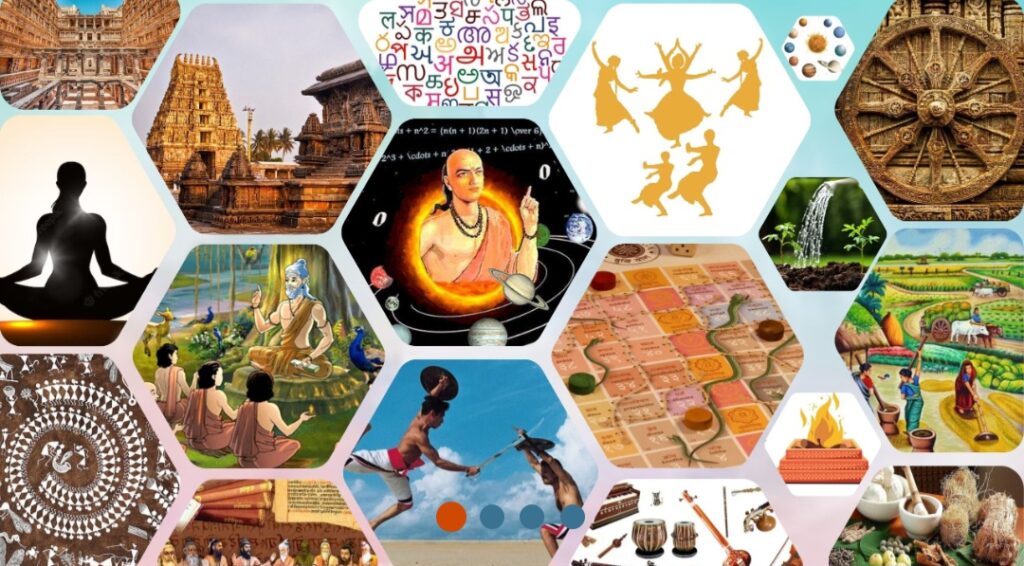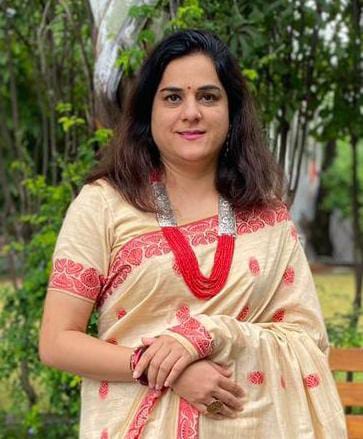By: Anamika Tiwari, Guest Author, GSDN

India that is Bharat, is one of the oldest civilisations in the world which has always been known for its rich and deep-rooted educational traditions. The Bhartiya Shiksha Parampara was not just about acquiring bookish knowledge but actually focused on an overall development to include values, discipline, skills, and a connection with nature and society.
Indian thought draws on a wide corpus of scriptural sources. The foundational texts that is the Vedas, Mahabharata, Bhagavad Gita, Arthashastra, Tirukkural and Manusmriti have provided India with a rich repertoire of ideas on statecraft, warfare, intelligence, and ethical leadership. These texts also served as the foundational pillars in shaping this culture and providing the principles that enabled ancient kingdoms to flourish. In the ancient days, it was the Gurukul system of education that helped the students learn in a practical and holistic way where education was personalised, and teachers (Gurus) played an important role in shaping not just the minds but also the character of students.
Till the advent of Mughals in 10th century, universities like Nalanda and Takshashila which are well described by the foreign travellers from Greece and Chinese as the learning centres who had volumes of scriptures and journals and large number of shikshak who imparted knowledge and shared their observations with students from far and wide.
After almost 70 years of Independence, the Government of India is actively promoting awareness about the Indigenous Indian Education System and supporting efforts to revive and decolonize the existing education framework. Towards this recently launched India’s National Education Policy 2020, is a landmark reform which aims to comprehensively revamp the country’s current education system, spanning from school-level education to higher education. In this context, a dedicated department called the Indigenous Knowledge Systems (IKS) Division has been established under the Ministry of Education to facilitate these initiatives at Higher Education level. Very soon, Indian Knowledge Systems (IKS) will be introduced at the school level and is expected to become a mandatory part of the curriculum as well.
The vision of the IKS Division is to rejuvenate and mainstream Indian Knowledge Systems for the contemporary world. The objective of the IKS Division is to completely decolonize Indian mind by generating interest and healthy critical reverence for the unbroken knowledge traditions of Bhārata for the welfare of the world.
Today, as the world faces challenges in education systems that often feel mechanical or stressful, it becomes important to look back at what India once had a system that was deeply human, spiritual, and value-based. The world today needs to move towards a more holistic way of education—one that focuses on overall growth, including values and well-being—rather than just following a materialistic and mechanical system that only targets marks and jobs. The world must know that the Indigenous Indian Education System is based on the principle of well-being for All.
The IKS is best understood if one understands the meaning of these three words i.e Bhartiya, Shiksha and Parampara. which is as under:-
Bhartiya – भारतीयः सः यो भारतभूमौ जातः वा, संस्कारतः शक्षयाच भारतस्य ानपरंपरायाम् तः।
(Bhāratīyaḥ saḥ yo Bhāratabhūmau jātaḥ vā, saṁ skārataḥ śikṣayā ca Bhāratasyajñānaparampārāyām sthitaḥ.) Meaning:
“A Bhartiya is one who is either born in the land of Bharat or who lives by the values, education, and knowledge traditions of Indian civilization.”
Shiksha – Shiksha is a Sanskrit word, which means learning, study of skills and that of phonetics and phonology.
Parampara – Parampara is a Sanskrit term meaning a continuation or succession that describes a tradition of passing knowledge, wisdom, and practices from a lineage of Gurus to their shishyas (Students) over generations.
The importance of IKS’s connect with the global perspective is best explained by the fact that the United Nations realised the importance of conservation, preservation and propagation of the natural resources of the Earth only as recently as in 2015 wherein it launched 17 sustainable Development Goals with the aim of having peace and prosperity for the people and the planet. These sustainable SDGs highlight the connections between the environmental, social and economic aspects of sustainable development. However, the same thought has been mentioned in the Indian Scriptures centuries earlier which is expressed explicitly in the following Shlok:-
oṃ svasti prajābhyaḥ paripālayantām
nyāyena mārgeṇa mahīṃ mahīśāḥ।
gobrāhmaṇebhyaśśubhamastu nityam
lokāssamastāssukhino bhavantu।।
The above Shlok expresses – May there be prosperity to the subjects, the rulers protecting the world in a lawful manner; may the animals and Humans have auspiciousness eternally, may all the people be prosperous, may the rains shower in the proper season, may the earth be prosperous with the abundant crops; may the country be free from distress, may the humans be fearless.
India is a knowledge-centred civilization whose ancient texts have been maintained over centuries and enshrine in themselves three core principles of Parampara (Tradition), Drishti (Perspective) and Laukik Prayojana (Practical utility). The AIKS recognizes the contemporary challenges and provides unique perspective for addressing and solving real world problems and improving societal well-being by focusing on health, environment, science, technology, engineering, mathematics, jurisprudence, economics, philosophy, management, natural sciences and astronomy.
However, over the years our knowledge system has been influenced by western publications, hence, we are constrained to study modern world challenges through the prism of their thought process. It is therefore imperative, that we decolonize Indian mindset and rejuvenate interest and healthy reverence for the traditions of Bharat for the welfare of contemporary world. We need to develop our Indian perspectives to challenges, founded on our ancient knowledge base, tempered with modern outlook. Modern India must therefore move beyond superficial commemorations and weave the lessons of the past into every layer of policy, strategy, and education to be a great nation again.

About the Author
Anamika Tiwari is the Founder-Director of Ashwatth whose website is http://www.theindianknowledge.com/ and is internationally renowned for spreading Indic studies and awareness programs. She tweets at @BharatKanyaa.


IKS and its importance has been extremely well explained by the author and its efficacy in the present day not only for Bharat but also for the whole world. We need to decolonize our minds at the earliest so that the vision of Viksit Bharat@2047 can be realised making Bharat a Vishwa Guru.
India had a very firm foundation of knowledge in every possible way and that need to be incorporated into modern settings too